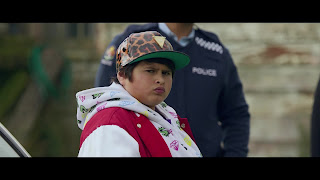I believe it’s okay to be a sucker for something as long as you know what you are a sucker for. I, for instance, am a sucker for babies, my wife’s cooking, bookstores, and re-runs of The Office. When it comes to documentaries, I am aware that I am a sucker for very specific things – Hollywood behind-the-scenes tales and stories of obsession. What I love is how often those two things come together. In the past on this show, I’ve reviewed Jodorowski’s Dune about a failed attempt to make the greatest sci-fi picture of all time, Lost Soul: The Doomed Journey of Richard Stanley’s The Island of Doctor Moreau about how a film was taken away from a director in the middle of production and how it all spun out of control, and now to that I list, I add Raiders! The Story of the Greatest Fan Film Ever Made.
Directed by Tim Skousen and Jeremy Coon and released in
2016, Raiders tells two stories.
First is the history of three eleven year old friends growing up in Ocean
Springs, Mississippi who, after seeing Steven Spielberg’s 1981 classic, Raiders of the Lost Ark, decided they
wanted to remake the film shot for shot and spent the next seven summers of
their lives doing exactly that. The second story is about the three friends as
grown adults in their mid-40s trying to get funding, resources, and time to
film the one scene of the movie that they could never figure out how to do on
their own – the infamous fight scene that takes place around a German flying
wing in the middle of Nazi compound in the desert.
One the one hand, both stories are bright and fun. What
could be more uplifting than a story of three young boys spending their time
doing something creative and ambitious that paid tribute to something they
really loved? What do we as viewers love more than a story of redemption and
coming back to finish the job and fulfill a lifelong dream? These aspects of
the film are fun and exciting. Interspersed with clips from the actual film are
interviews with the boys’ parents, spouses, and friends, many of whom appeared
in their version of Raiders over the years. The footage of Chris, the director
of the fan film, having the back of his shirt set on fire with gasoline so they
could shoot the Nepal bar gunfight or the sequence with Eric, the kid who
played Indiana Jones, holding onto the grill of a moving truck will probably
make you wince a little – at least if you’re a parent – but most of it adds up
to good old fashioned 1980s American teenager fun.
But on the other hand, the story told by the documentary is
also surprisingly dark. As adults, the three boys who made the film admit that
it was their parents’ divorces, poverty, and unstable homes that drove them to
spend every day outside away from the prying eyes of adults. The trio of
friends split apart shortly after they abandoned the film, and even in the face
to face interviews as adults, Jaysen, the third member of the trio, never
appears on camera with Eric and Chris. As the boys grew up, there was betrayal,
drug abuse, abandonment, and lies.
Even when the film becomes a cult hit thanks to an
influential movie festival and the men are given a chance to seek funding to
finally finish their film, the story isn’t all love and redemption. We see
Chris repeatedly risk getting fired from his real job at a video game company
to keep filming the final scene. As with almost every movie making story, we
see weather delays, budget overages, backstage sniping, and crew members
walking off set. Even though the flying wing fist fight sequence does finally
get filmed, when a crew member is knocked unconscious by a malfunctioning
pyrotechnic effect, you have to wonder if all the effort, sacrifice, and danger
is worth it. The film does raise interesting questions about the American ideal
of following one’s dreams and asks where the line is between chasing a dream
and being driven by obsession.
Even though the story is somewhat ambiguous in ways, I don’t
have ambiguous feelings about the documentary itself. I am a sucker for Raiders: The Story of the Greatest Fan Film
Ever Made and I bet if you watch it, you will be too.







